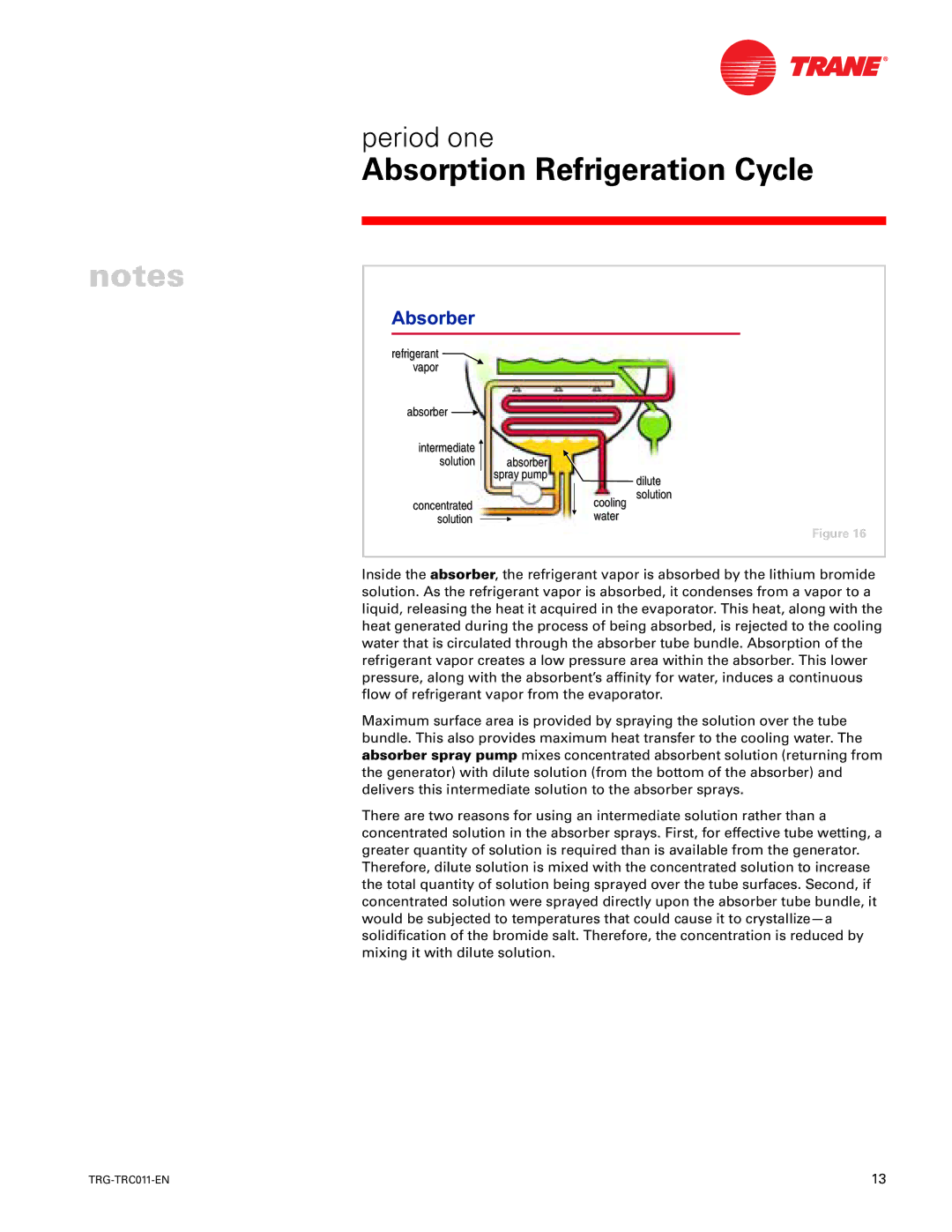
period one
Absorption Refrigeration Cycle
notes
refrigerant ![]() vapor
vapor
absorber
intermediate solution
concentrated solution
absorber spray pump
cooling water
dilute solution
Figure 16
Inside the absorber, the refrigerant vapor is absorbed by the lithium bromide solution. As the refrigerant vapor is absorbed, it condenses from a vapor to a liquid, releasing the heat it acquired in the evaporator. This heat, along with the heat generated during the process of being absorbed, is rejected to the cooling water that is circulated through the absorber tube bundle. Absorption of the refrigerant vapor creates a low pressure area within the absorber. This lower pressure, along with the absorbent’s affinity for water, induces a continuous flow of refrigerant vapor from the evaporator.
Maximum surface area is provided by spraying the solution over the tube bundle. This also provides maximum heat transfer to the cooling water. The absorber spray pump mixes concentrated absorbent solution (returning from the generator) with dilute solution (from the bottom of the absorber) and delivers this intermediate solution to the absorber sprays.
There are two reasons for using an intermediate solution rather than a concentrated solution in the absorber sprays. First, for effective tube wetting, a greater quantity of solution is required than is available from the generator. Therefore, dilute solution is mixed with the concentrated solution to increase the total quantity of solution being sprayed over the tube surfaces. Second, if concentrated solution were sprayed directly upon the absorber tube bundle, it would be subjected to temperatures that could cause it to
13 |
